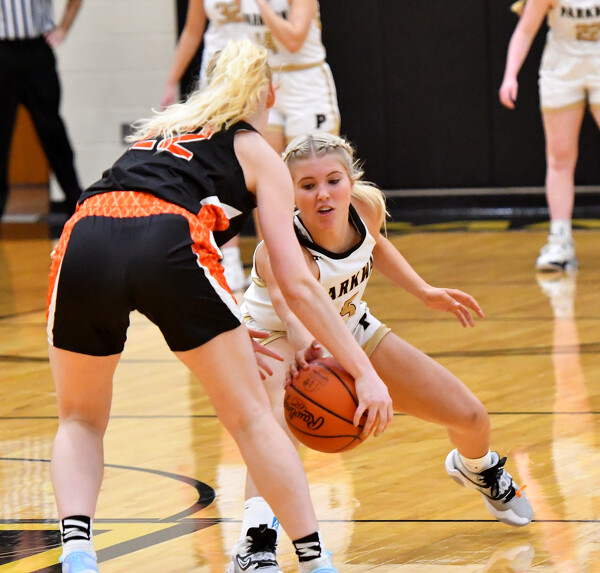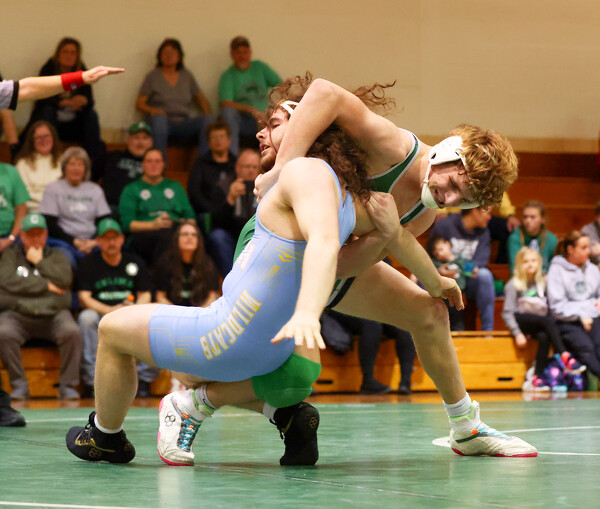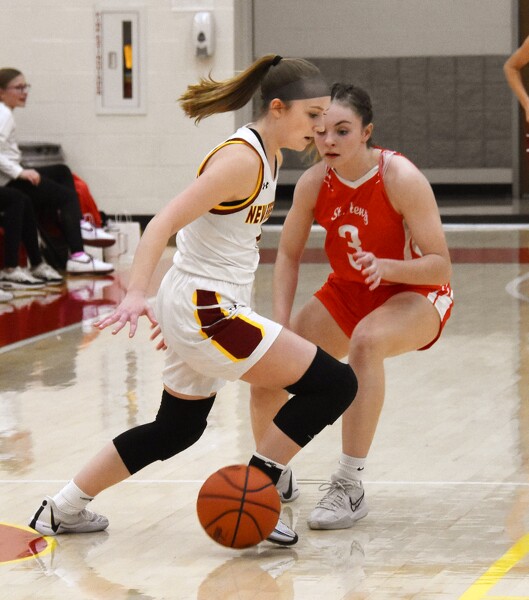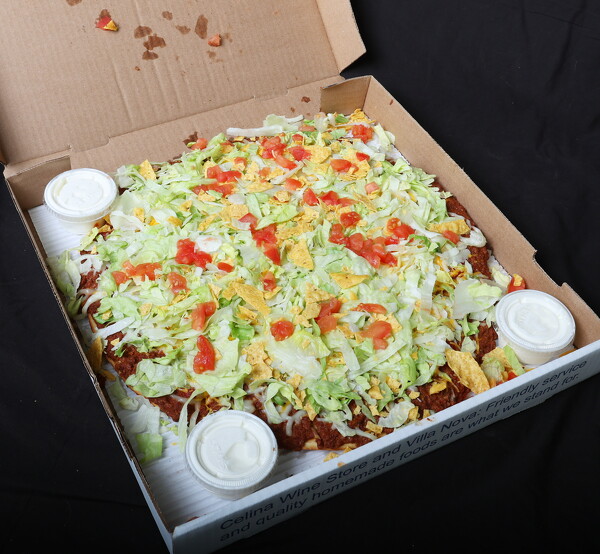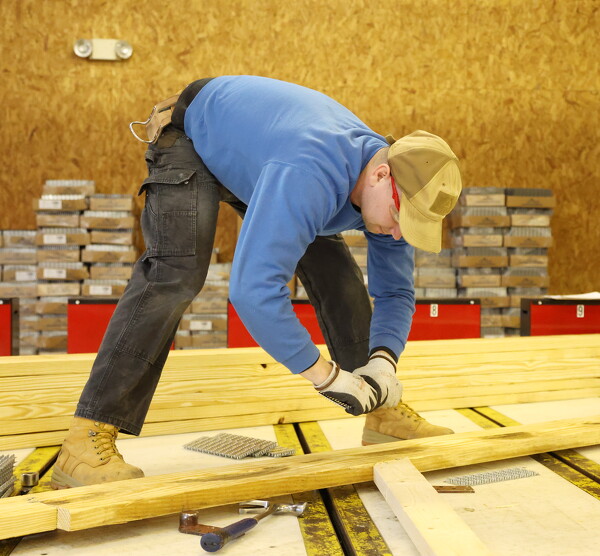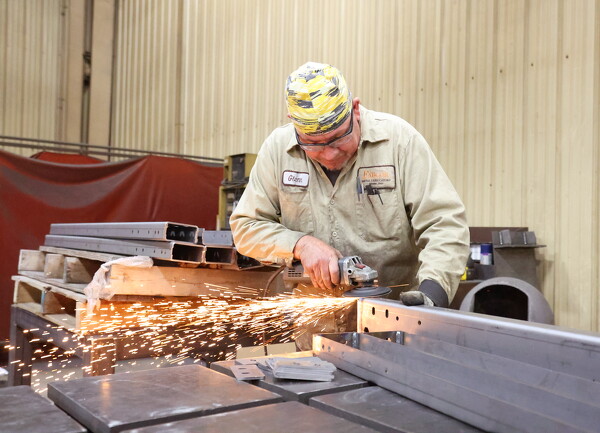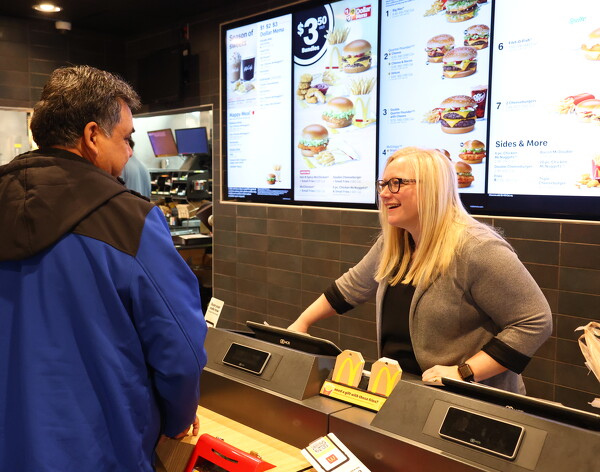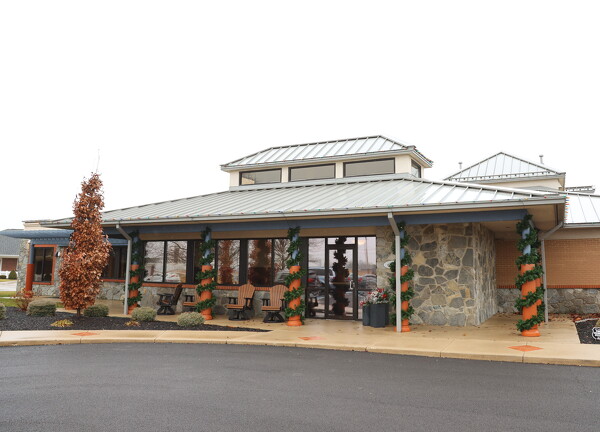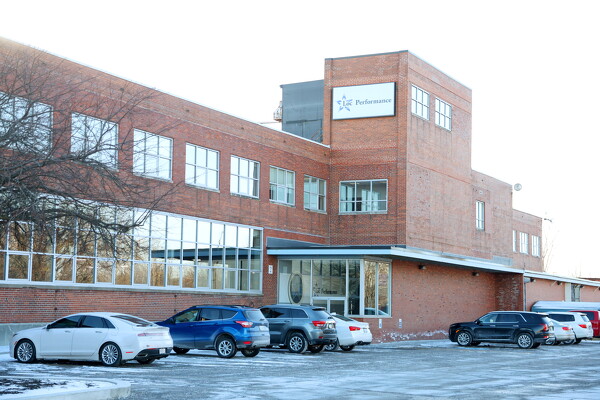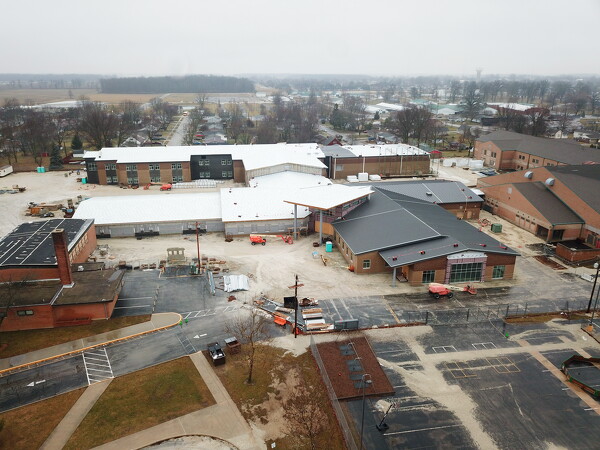
Kard Welding employee Steve Parker submerged arc welds a plate girder for an ODOT project in Stark County.
MINSTER - Started in 1982 as a small shop fabricating upper couplers for semitrailers, Kard Welding has grown bigger - much bigger - over the years, now turning out steel beams weighing as much as 96,000 pounds for large bridges and buildings.
Today Kard Group is an umbrella organization made up of Kard Welding, Egypt Structural and Kard Bridge.
Ken Osterloh founded the business on his family's farm after falling victim to an economic downturn that caused him to be laid off from his job at IE Industries, now Midmark.
The company name is derived from the first letter of the names of Ken Osterloh, his mother and father, Anna Marie and Ralph, and his wife, Doris.
Doris Osterloh, who serves as company president, recalled during a recent interview that after her husband was furloughed, he went to work in the welding shop created out of an old chicken coop-type building while she held a job as a nurse.
"After all, it wasn't a bad thing," she said about the layoff that prompted the founding of a company, located at 480 Osterloh Road, which now employs 43 workers and encompasses several large buildings on a 10-acre site.
Kard Welding started out slowly, but after showing area companies he could handle their welding needs, Ken, who has since retired, found that he had more business than he could handle, according to a company history. He soon had to hire employees and add large pieces of equipment, the first of which was a 950-ton Cincinnati Press Brake.
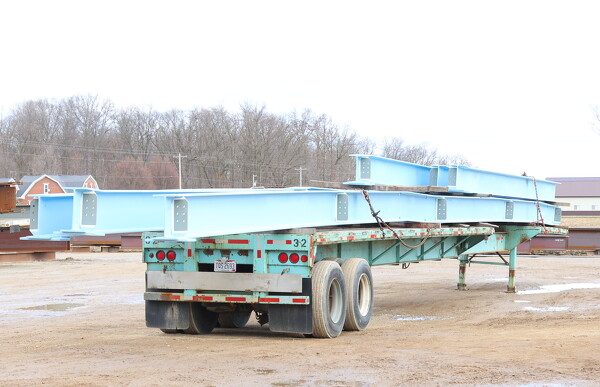
A trailer of painted beams produced by Kard Welding awaits shipping for a pedestrian bridge project in Pittsburgh.
The company diversified in 1988, establishing Egypt Structural Steel to work with small to medium sized steel fabricators. The next step in the company's development was the founding of Kard Bridge Products to handle steel for local and state bridges. The company specializes in rolled beam bridges, plate girder bridges, expansion joints and finger joints.
Kard gained American Institute of Steel Construction certification as an Advanced Bridge Steel Fabricator.
Plant manager Josh Osterloh said Kard Bridge began production of I-beams in 1999.
"Bridges are getting wider, so the beams are longer, taller and thicker for support," he said.
Production of steel beams for bridges in Ohio, several other states and Puerto Rico has become the company's primary source of sales.
"I would say 85% of our work is on bridges," he said.
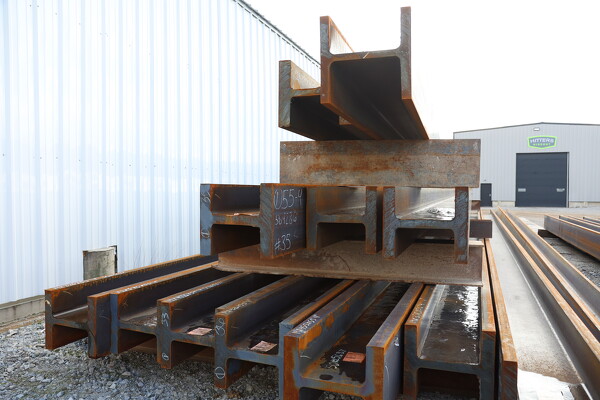
This stack of raw steel columns will be used to make some of the 234 vertical building columns for Microsoft's new $1 billion data center in Mount Pleasant, Wisconsin.
In addition to bridges, Kard also fabricates heavy steel beams for building projects. Among the current projects using Kard beams are the $165 million Hadley Family Recreation and Well Being Center on the University of Michigan campus and the $1 billion Microsoft data center in Mount Pleasant, Wisconsin. They also played a role in the construction of the $1 billion Wexner Inpatient Hospital on the campus of The Ohio State University.
Transporting the massive steel beams isn't an easy task. Trucks hauling beams on trailers up to 90-feet long must travel on state highways and be accompanied by a vehicle warning traffic of the heavy load, according to Josh Osterloh. He also noted that the trucks are forbidden to drive in cities during rush hour and have a 50 mph highway speed limit.
"We used to have our own trucks, but in 2018 we got rid of them because there was too much maintenance and we had a problem finding drivers," he said.
Instead of having a fleet of semitrailers, Kard contracts with area farmers who have their own rigs to transport the steel beams.
"They make good money," he said.
The company buys steel from companies in Blytheville, Arkansas, and Cofield, North Carolina. Kard used to receive the steel shipments by rail, but with the closing of the line from St. Marys to Minster several years ago, the last train has left the station.
"Once it's gone, it will never come back," Josh Osterloh said.
Kard made an offer to rebuild a condemned trestle on the local line at no cost. It was declined because the tracks would have had to be replaced before it could handle train traffic, he said.
"It was cheaper to ship by rail, a fraction of the cost of trucking," Josh Osterloh said, noting in the past, steel was unloaded from rail cars in Minster onto company trucks hauling the loads a few miles to the plant west of Egypt.
Kard doesn't have a team of sales personnel. Instead, the word-of-mouth endorsements from companies have led to a steady flow of contracts, Josh Osterloh said.
"We have some of the same customers he (Ken Osterloh) started with 20 years ago," he said. "I think we've only had two layoffs since I have been here. The shop guys are always on overtime. We work 48 hours consistently."
The company fabricates steel according to customer specifications. The process involves cutting the steel, welding and drilling holes for bolts and assembling the beams before they are disassembled, blasted to remove rough spots and then painted before being shipped out.
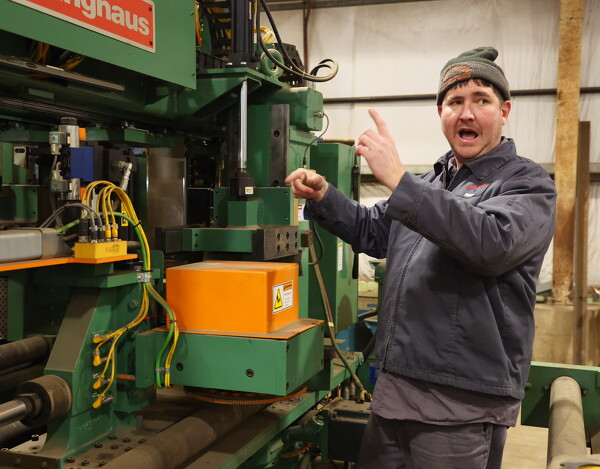
Kard Welding plant manager Josh Osterloh explains how his company's new Peddinghaus coping machine works to cope structural steel.
A shift in the company operation is expected to take place this spring when the younger generation of Osterlohs take control.
Doris Osterloh serves as president. She said their children, who have worked in the business since they were teenagers, will assume ownership. In addition to Josh, the other Osterloh children in the business are Jason, quality manager, and Kim, human resources manager.
The Osterlohs have plans to expand the business in the future, with an eye on securing more business with large construction projects, much like the Microsoft data center building now underway.
"We want to expand and get into heavier steel markets and continue growing over the next X number of years," Josh Osterloh said. "There is more money involved in the bigger buildings. There is good money in bridges but there is even more money in big buildings like the Wexner Center, the building at the University of Michigan and the Microsoft building."
The expansion would involve adding more employees, he said. Bids are being solicited for the construction of a large addition to a building in the Kard Welding complex.
The Osterlohs have also launched a new sideline business, Hitters Hideout. Housed in a building in which hay for cattle was once stored, Hitters Hideout features batting cages and a volleyball/basketball court. The whole building can also be rented for gatherings.
Josh Osterloh said the Hitters Hideout has proven to be popular with area youth baseball and softball teams. He noted a lounge was added for parents waiting for their children to complete sports practices.
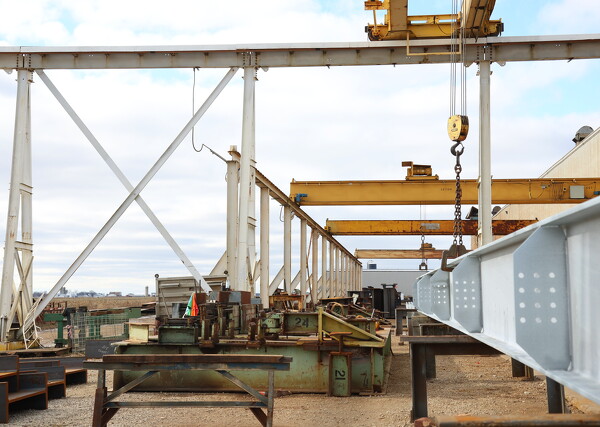
Above is a sample of galvanized beams going to a Woodman Drive bridge over U.S. Route 35 in Dayton.

